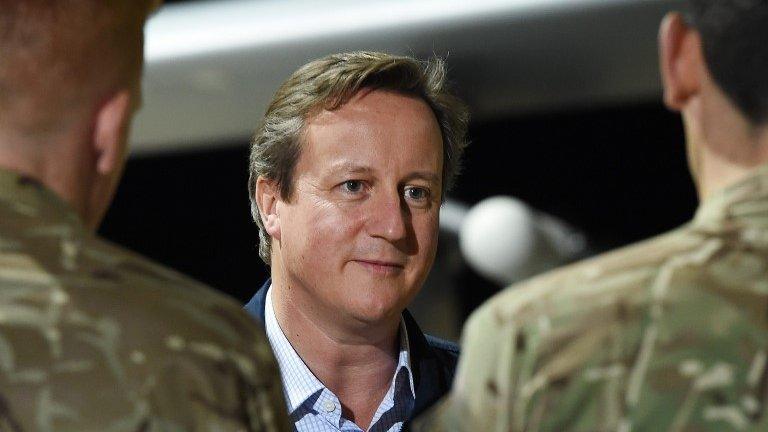Islamic State crisis: UK to extend Tornado strikes in Iraq
- Published
Michael Fallon: The air campaign... is now going to be extended"
The RAF Tornado mission against Islamic State militants in Iraq is to be extended by an extra year, Defence Secretary Michael Fallon has said.
The jets - due to be disbanded last March - are to be kept in service until "at least" March 2017 to continue air strikes, he said on a visit to Iraq.
Mr Fallon said the air campaign against the IS group was making progress.
UK jets had pushed militants out of key towns and would maintain "essential precision firepower," he said.
Tornados began carrying out missions in Iraq last September as part of US-led air strikes against IS, an extremist group which has seized control of parts of Iraq and Syria.
The squadron of Tornado GR4 fighter bombers - Number 12 Squadron - was due to be disbanded last year and replaced with a squadron of Typhoon air defence fighters.
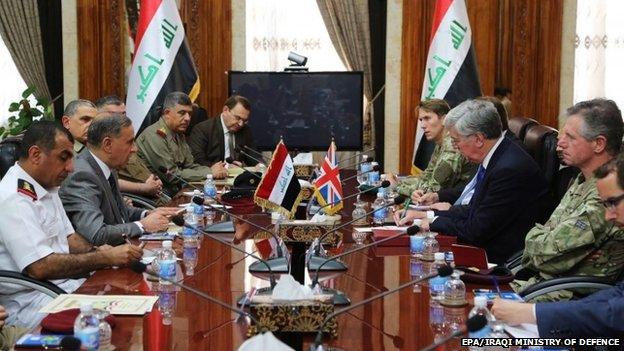
Michael Fallon said Iraqi officials had not requested ground support
But, following initial air strikes, Prime Minister David Cameron announced the Tornados would continue in their specialist ground-attack role until March 2016.
Mr Fallon said this second reprieve for the eight bombers - which are based in Cyprus - would ensure the RAF retained "the essential precision firepower, intelligence and surveillance" capabilities needed for operations against IS, also known as Isil.
He denied the extension had come about because there were no other RAF aircraft capable of flying the missions.
Tornados had "proved their worth" in Iraq, he told the BBC, adding they had completed about 30% of the coalition's surveillance missions, as well as carrying out air strikes.

Analysis
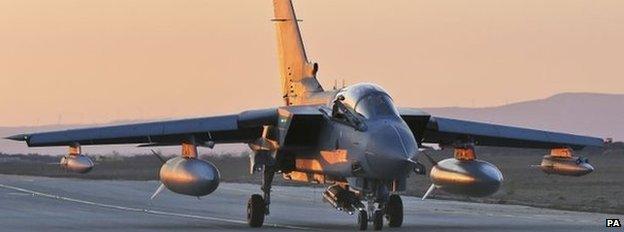
BBC security correspondent Frank Gardner
The announcement on Britain's ageing but effective squadron of RAF Tornado bombers has been carefully planned.
Mr Fallon announced it in Baghdad, from where he is keen to give the message that slowly but surely Iraqi forces are starting to push back the jihadists and retake territory.
He denied that Britain's contribution - of under 5% of the coalition's air strikes - was making only a negligible difference. He said the Tornados' combination of precision-guided weapons and hi-tech surveillance pods made them vital.
The painful truth for the coalition though is that for more than a year now IS has been able to hold on to most of the huge areas it has occupied in Iraq and Syria, something al-Qaeda never achieved.
It is earning estimated oil revenues of $40m a month and replenishing its ranks of recruits faster than they are being killed off.
This, admitted the defence secretary, will be a long fight.

Speaking earlier in Baghdad, where he met Iraqi officials, he said Iraq needed British help with air support, training and equipment, but not with ground troops.
"RAF Tornados have carried out hundreds of strikes, helping Iraqi forces push back Isil from the Kurdish region and out of key towns such as Tikrit and Bayji," he said.
"We want to ensure we maintain this crucial operational tempo and so we will extend the lifetime of Number 12 Squadron for a further year to March 2017."

The Tornado
In service for 30 years plus
Current GR4 Tornado first deployed in 1990s
Two-seater attack aircraft that can operate at low level, day or night
Capable of carrying wide variety of weapons
Max speed: 1.3Mach
Max altitude: 50,000ft
Length: 16.72m
Span: 8.6m
Has seen action in Iraq, Kosovo, Afghanistan and Libya
Source: The RAF, external

The GR4s operating out of Cyprus are equipped with precision-guided Paveway bombs and Brimstone missiles.
They can also be fitted with Raptor reconnaissance pods for carrying out surveillance and intelligence-gathering missions.
Together with the RAF's unmanned Reaper drones they have flown more than 1,100 combat missions over Iraq and carried out more than 250 air strikes.
They have also carried out surveillance missions over Syria but Parliament has not approved air strikes there.
- Published4 August 2015
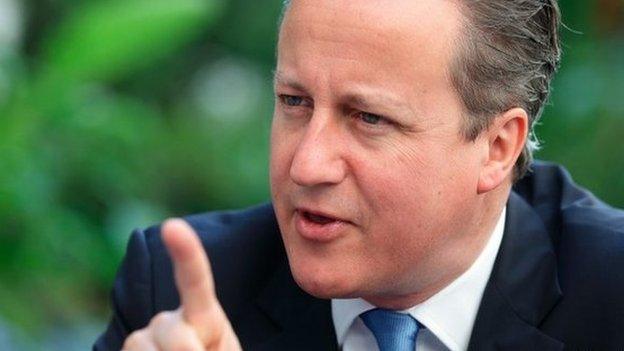
- Published3 August 2015
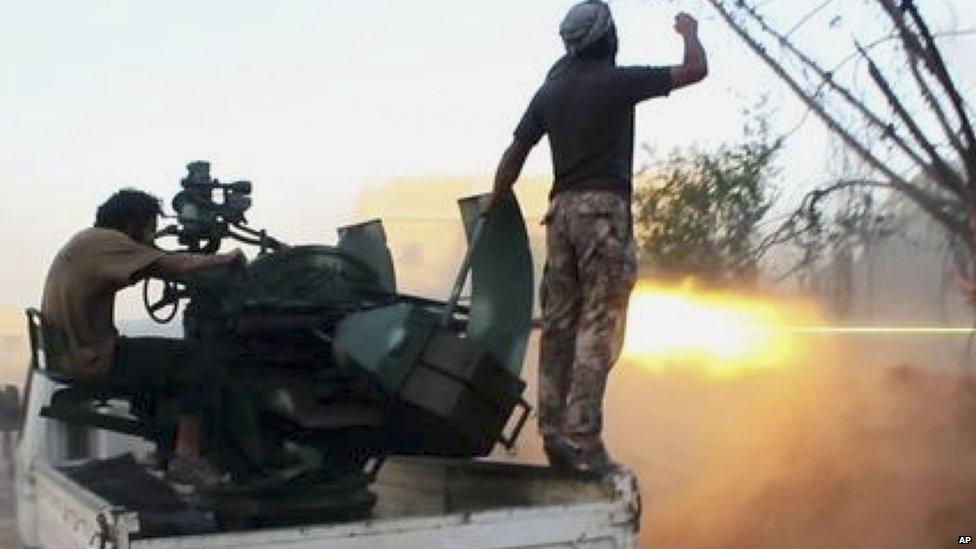
- Published22 July 2015
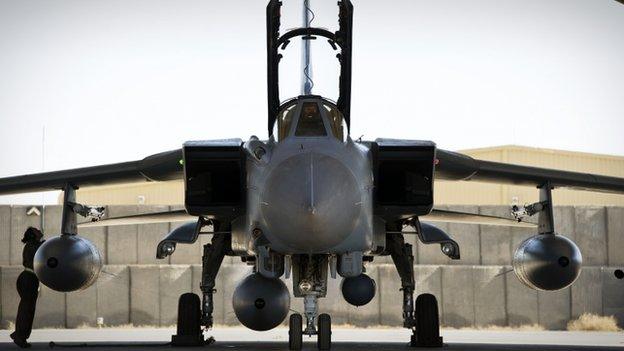
- Published20 July 2015
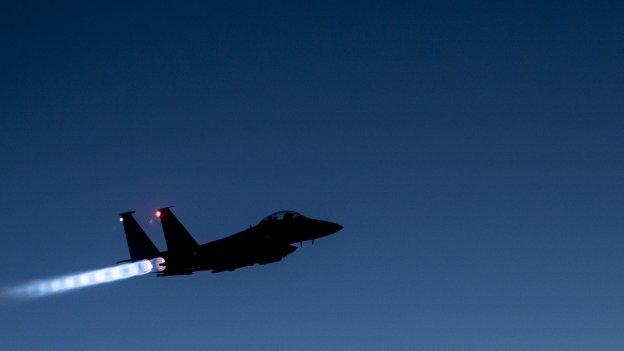
- Published15 December 2014
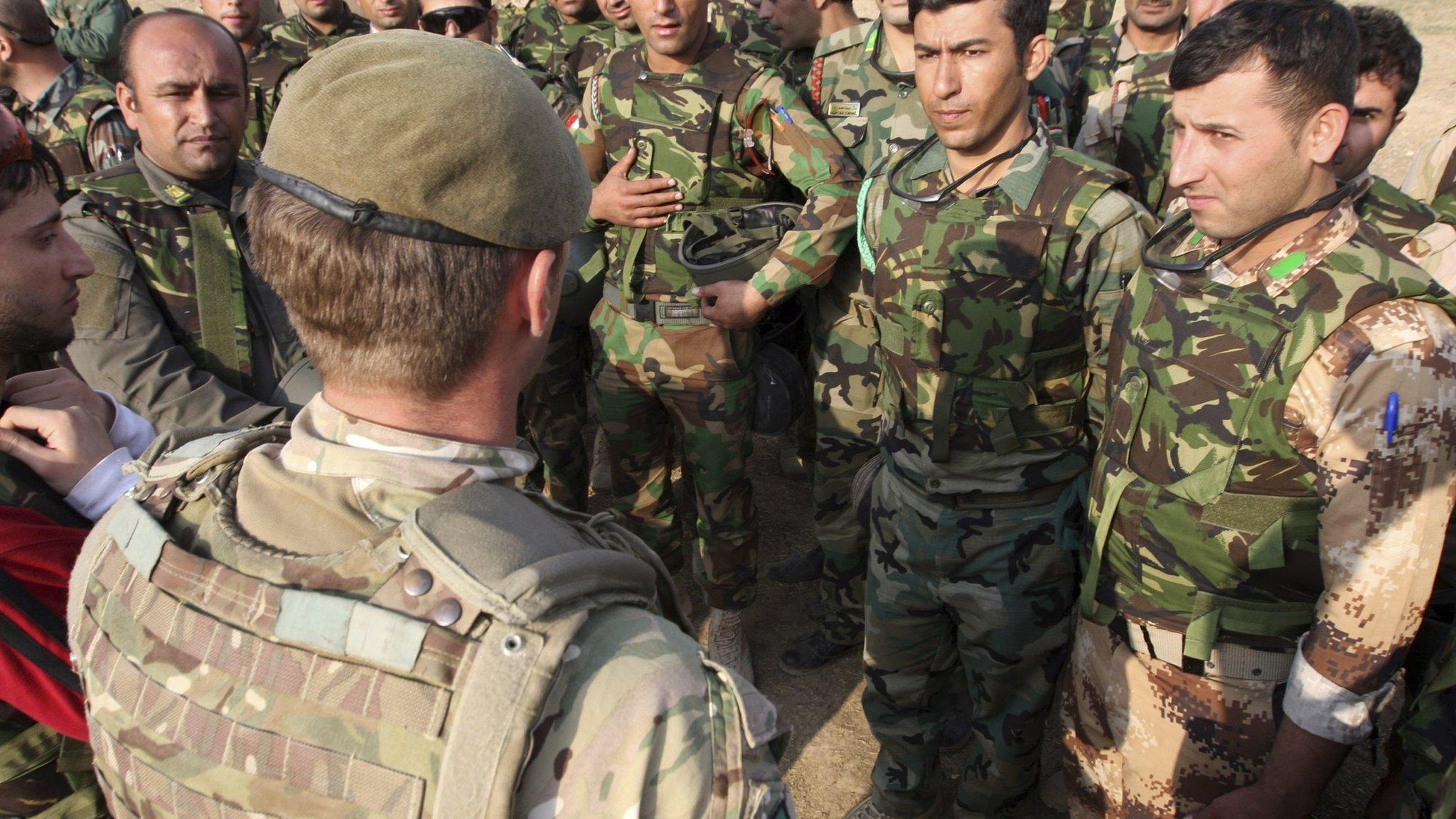
- Published2 October 2014
